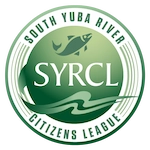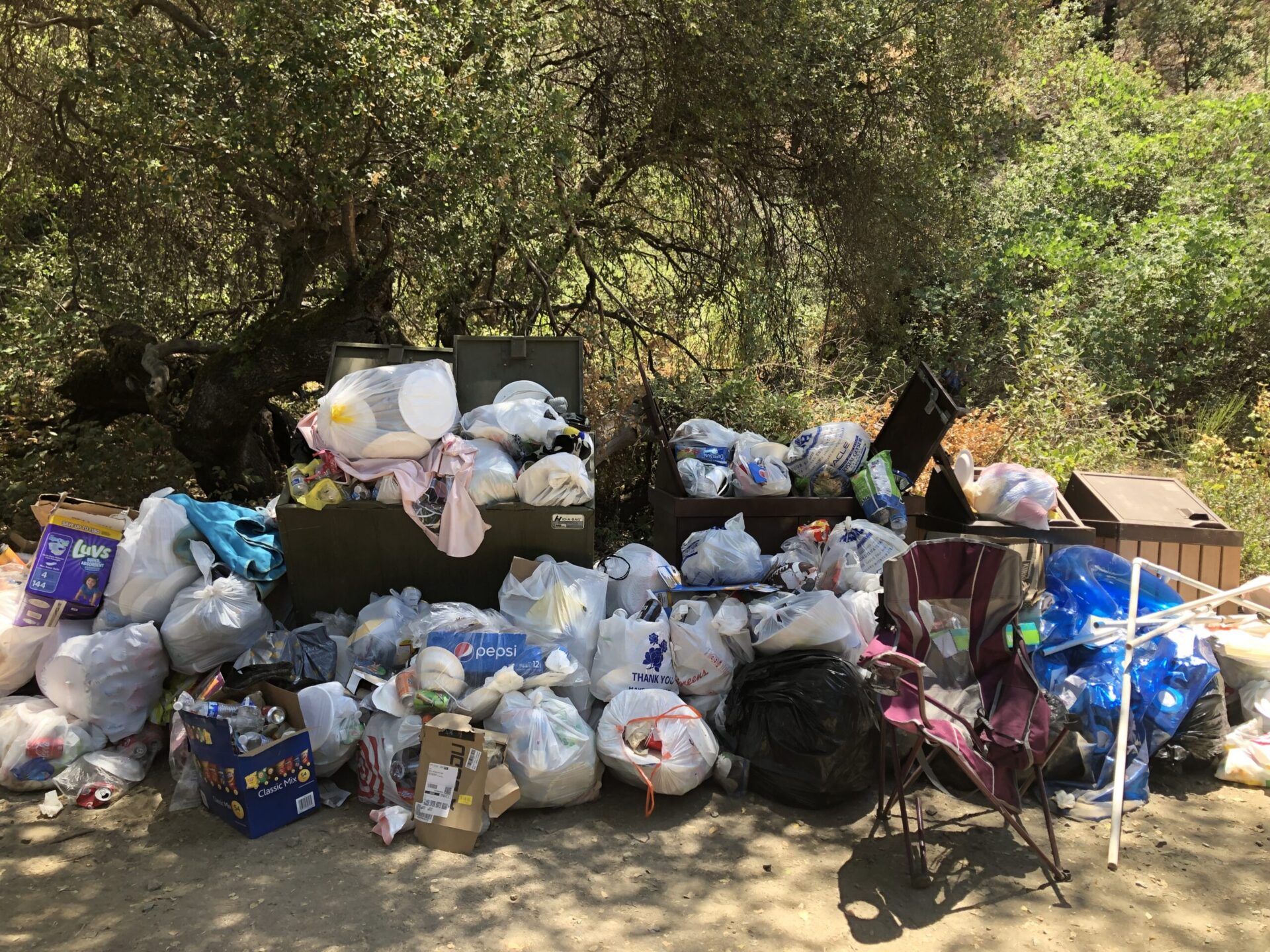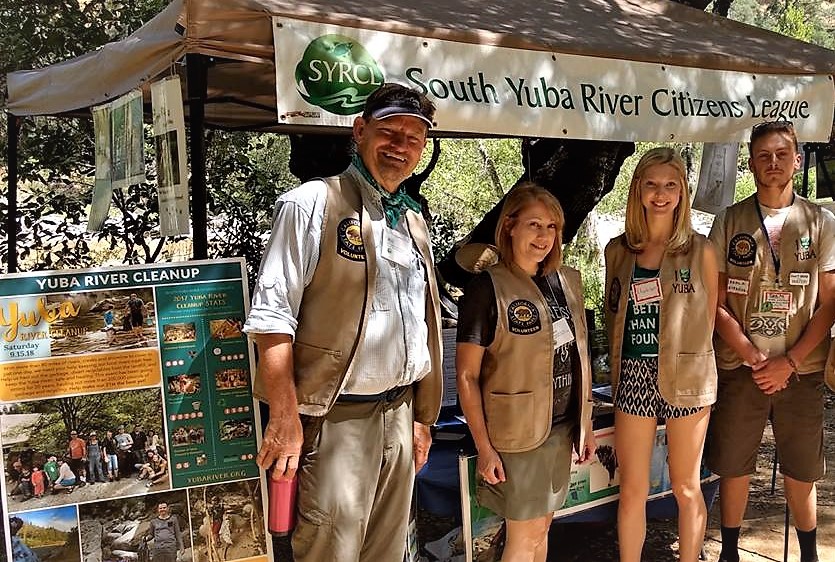How Can We Stop Illegal Dumping?

Reflecting on our Annual Yuba River Cleanup, we want to take a moment to consider why cleanup programs are so important and why illegal dumping is such a frequent occurrence in the Yuba River watershed and throughout Nevada County.
At the end of this piece, we also provide a link to further resources in Nevada County.
Why do people dump?
The reasons why one might choose to illegally dump waste often vary. However, research indicates that the most common factors are a shortage of disposal options, weak enforcement laws, and a lack of public awareness regarding the environmental health hazards and economic dangers of illegal dumping.
Solutions to Illegal Dumping
Efforts to combat illegal dumping vary depending upon the situation as solutions are crafted with specific community dynamics in mind. Common approaches include a combination of limiting access to illegal dumping sites, surveillance, enforcement, and increasing access to and availability of legal waste disposal options:
Limit Access
One method of limiting access includes the re-landscaping and beautification of an illegal dump site. Adding aesthetic amenities such as grass, flowers, and benches gives the impression that a given area is well-maintained, discouraging potential dumpers. Additionally, increasing community use of a site can help adjust the perception of an area from dumping ground to valued open space.
Increasing surveillance and enforcement
Increasing offenders’ risk of getting caught and implementing tougher enforcement laws are also ways to combat illegal dumping. Heightened police patrols, anti-dumping signage posted in known illegal disposal sites, and the use of surveillance cameras can deter illegal dumping, especially when used in conjunction with one another.
Provide alternatives
Removing illegal dumpers’ reasons for improperly disposing of waste materials has also proven effective. Offenders often choose to dump illegally to save money. Offering free or subsidized waste services to residents can encourage legal disposal. Offering alternative disposal options like recycling and compost centers can also be helpful as can making available disposal options for materials that are banned from landfills (i.e., tires, toxic and hazardous waste, and medical waste).
Education
Education campaigns can be used to further discourage and mitigate illegal dumping as well. For example, informing residents and businesses of legal waste disposal options through mailed flyers, newspaper and radio announcements, and posters lets people know they have options. Posting signage at and around areas that are known illegal dumping sites can also help deter potential offenders.
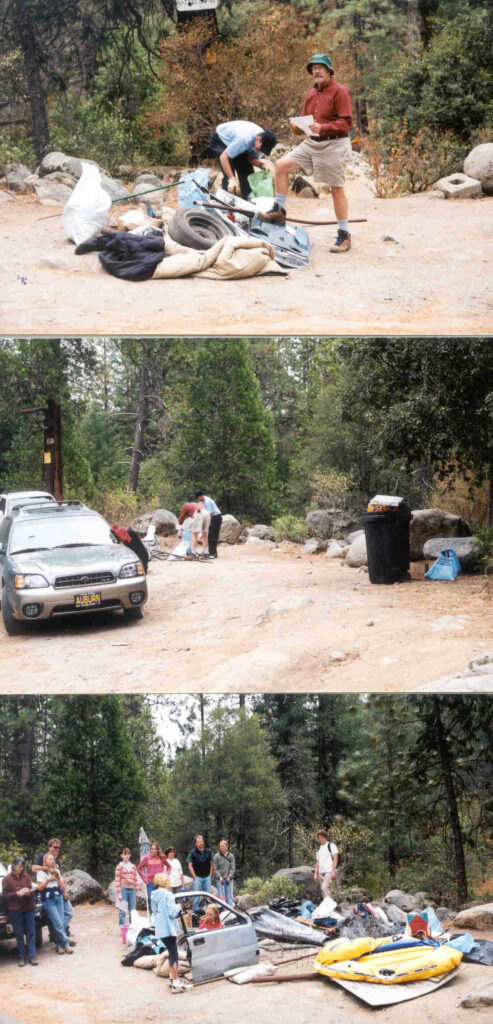
Pictured above: Illegally dumped waste collected during the 2004 Yuba River Cleanup
Cleaning up existing dumps
According to the United States Environmental Protection Agency, waste attracts more waste. Therefore, cleaning up existing illegal dump sites is a helpful deterrent for additional illegal dumping. Annual, organized cleanups like the Yuba River Cleanup are an important way to unite the community and encourage each other to protect the natural resources around us from the impacts of illegal dumping.
You don’t need to wait until next year’s Yuba River Cleanup to help be part of the solution! Since waste attracts more waste, packing out what you pack in, picking up after your pets, and encouraging others to do the same can help slow or stop the cycle.
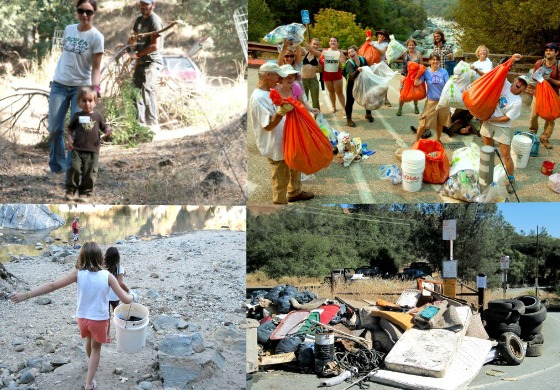
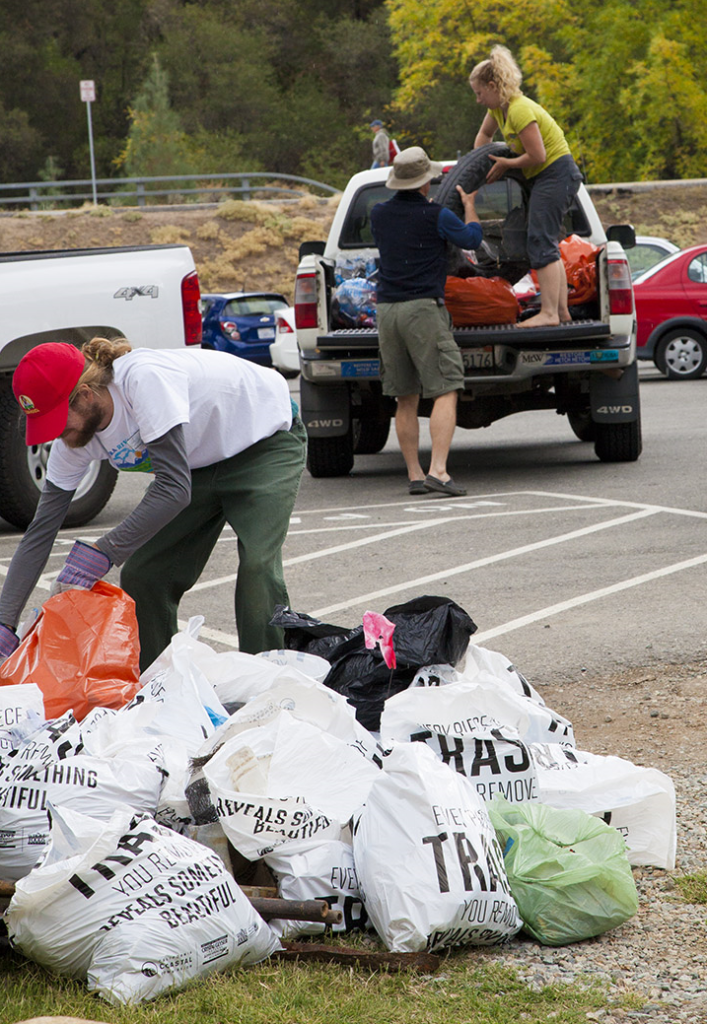
Pictured above: Volunteers helping to clean up illegally dumped waste over the years
Local Resources
Nevada County is committed to providing recycling to residents by working with various local agencies, community services, Waste Management, and Cal Recycle.
Programs and Annual events such as the Tire Amnesty, Green Waste Days, and programs such as the Refuel your Fun Campaign for refillable and recyclable propane canisters are just a few of the ways the Solid & Hazardous Waste Division is working to keep Nevada County clean
Did you enjoy this post?
Get new SYRCL articles delivered to your inbox by subscribing to our ENews.
